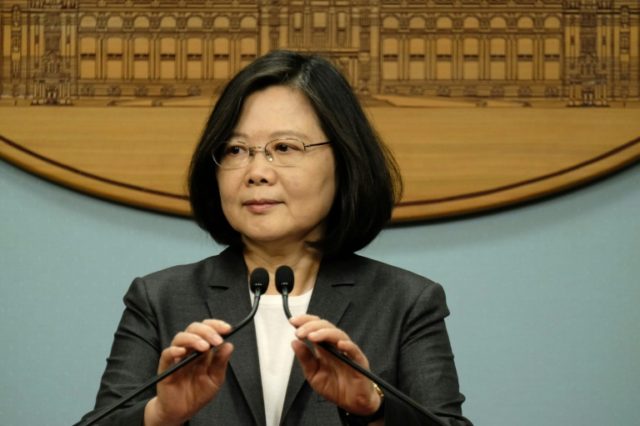President Donald Trump signed the Taiwan Travel Act on Saturday, bringing a round of applause from Taiwanese officials and citizens plus the expected statement of disapproval from China.
Taiwanese President Tsai Ing-wen expressed her gratitude to Trump on Twitter:
“The tweet comes amid many statements of gratitude and promises of commitment from Taiwanese government officials,” CNA News observes.
Taiwanese officials hailed the Travel Act as a milestone in U.S.-Taiwan relations and said they would work closely with American officials to strengthen bilateral ties. Although the Act has little firm legal impact, the Taiwanese see it as an important symbolic gesture of support at a time of increasingly tense relations with China. They also see the passage of the Act as a demonstration of defiance against China that fits with the Trump administration’s tougher stance against Beijing in areas such as trade and intellectual property theft.
“The relationship between Taiwan and the U.S. is close, and has been consolidated after efforts by both sides in recent years. The U.S. executive branch has sent more senior officials to Taiwan since Trump has come to office,” the Taiwanese Foreign Affairs Ministry noted.
The Travel Act does little more than state travel by high-level U.S. officials to Taiwan, and vice versa, is acceptable if deemed necessary. The Foreign Policy Research Institute quotes the relevant passages:
It should be the policy of the United States to (1) allow officials at all levels of the United States Government, including Cabinet-level national security officials, general officers, and other executive branch officials, to travel to Taiwan to meet their Taiwanese counterpoints. … [and] (2) allow high-level officials of Taiwan to enter the United States, under conditions which demonstrate appropriate respect for the dignity of such officials, and to meet with officials of the United States.
As the FPRI points out, U.S. policy has effectively prohibited such visits until now, leading to such comical spectacles as Taiwan’s president playing tourist during “layovers” in Honolulu or San Francisco rather than making official visits to the United States.
“The Taiwan Travel Act does not bind or force President Trump to send officials to Taiwan, or receive officials from Taiwan,” the FPRI explains. “The law only urges the president to do so. For allowing Taiwanese officials into the United States, the law even has a modifier—’under conditions which demonstrate appropriate respect for the dignity of such officials’—that allows wiggle room for the president to avoid further angering China, if he so chooses, while also not flouting the will of Congress.”
China, of course, was much less pleased with the passage of the Travel Act than Taiwan.
The Chinese embassy in Washington released a statement on Saturday that China is “strongly dissatisfied” with the Taiwan Travel Act, claiming that some of its provisions “severely violate the One China principle.”
This is the principle that Taiwan is a semi-autonomous province of China that can never declare full independence from the mainland. According to the Chinese, the Travel Act violates a commitment not to restore direct official contact with Taiwan that was made when the United States switched diplomatic recognition from Taipei to Beijing in 1979.
China’s state-run media was even more belligerent in its response than the embassy, encouraging military pressure against Taiwan to squelch any “secessionist forces” that might be emboldened by Trump’s signing of the Travel Act.

COMMENTS
Please let us know if you're having issues with commenting.